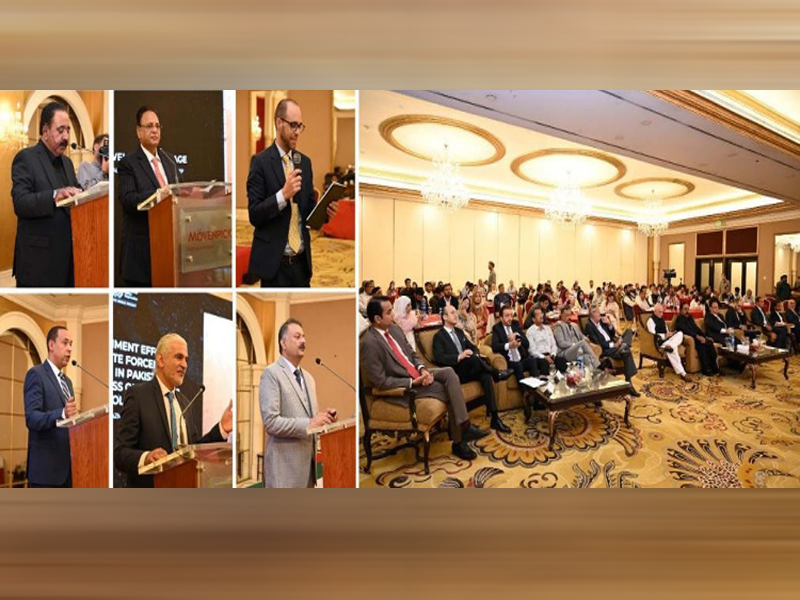EFP, ILO and govt unite to eliminate forced labor

- 119
- 0
KARACHI: The Employers Federation of Pakistan (EFP), in collaboration with the International Labour Organization (ILO), under the BRIDGE Project funded by the U.S. Department of Labor (USDOL), hosted a National Conference on the Elimination of Forced Labor.
This event promoted the use of best practices, highlighted roles in supply chains, and advocated for the adoption of protocol 29 to prevent forced labour from Pakistan's supply chains. The event began with welcoming remarks from Malik Tahir Javed, President of the EFP, who emphasized the critical importance of compliance with labor standards for businesses. He highlighted that adherence to these standards is not only essential for ethical business practices but also crucial for sustaining international trade relationships and enhancing Pakistan's global reputation. During the conference, the Provincial Minister for Labor, Shahid Abdul Salam Thahim, spoke on the government's dedicated efforts to eradicate forced labor in both formal and informal sectors. He acknowledged the vital support provided by the ILO, praised the EFP's efforts in contributing and creating allegiance, and noted that expert recommendations are instrumental in diminishing forced labour both from the formal and informal sectors of work. Guillermo Mont, the Officer-in-Charge of the ILO Country Office, expressed his gratitude to the Government of Pakistan for its continued contributions and cooperation in this crucial effort.
He reaffirmed the ILO's commitment to supporting Pakistan in its initiatives to eliminate forced labor and extended good fortune to EFP in continuing the commitment to eradicate forced labour from Pakistan. Raja Tanveer Azmi, Joint Secretary of the Ministry of Overseas Pakistanis & Human Resource Development highlighted the government's full commitment to this cause, announcing that Pakistan will soon ratify Protocol 29 as a clear testament to its dedication to combating forced labor. He also mentioned the ethical and fair working conditions, now being adopted due to the regularities of the government, which benefit low-income workers to have prominent and efficient rights in and outside of the working environment. Oluremi Doherty, Chief Technical Advisor - Bridge Project, provided a global overview of the forced labor situation and discussed the ILO's response, including its efforts in standard-setting and various other projects like BRIDGE. Dr. Faisal Iqbal, the National Coordinator of the ILO, delivered a briefing outlining the BRIDGE initiatives of the ILO in collaboration with the Government, Workers, and Employers' Organizations and explained the positive impact gained by the Workers and Employers present especially in the mining, agriculture, and the brick kilns sectors of Pakistan. The conference also featured contributions from industrialists, business leaders, and specific social sector experts from Artistic Milliners and Nestle Pakistan, who highlighted the challenges associated with forced labor and offered valuable suggestions for its eradication across all sectors. The session concluded with a Q&A segment, where experts responded to questions from the audience.

















































